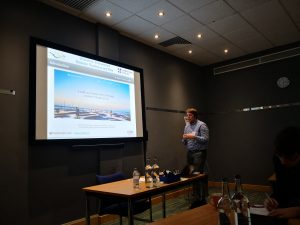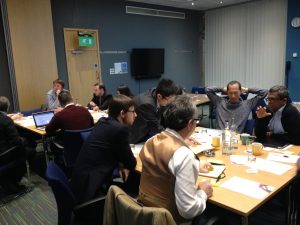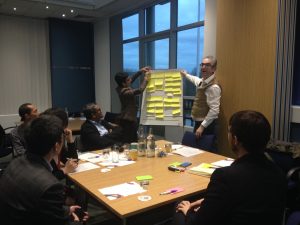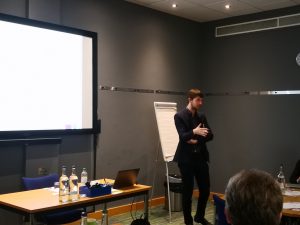3



5th December 2017
Holywell Park Conference Centre, LE11 3GR, Loughborough, UK
Resilience is the capacity of systems to adapt to, and/or recover from adversity, trauma, tragedy, threats or significant sources of stress. Non-resilient systems can fail in catastrophic ways with significant consequences for people, the environment and society as a whole. However, whilst building a 100% resilient system may seem at first to be highly desirable this may not be achievable for many reasons such as cost and sustainability. Also, given our world is in constant flux, it may not be possible to accurately predict or control this evolutionary development and consequences for resilience. Greater reliance on increasingly interconnected systems will only exacerbate this challenge meaning that we need to fully understand this nexus. Crucially, the level of resilience is inherently closely coupled to what is considered to be acceptable risk. While the concept of resilience is multi-dimensional and intellectually challenging, we need to consider whether strategies can be developed to address the complexity and uncertainties by building resilience into risk management.
This workshop will focus specifically on examining strategies and architectures for resilience by looking at the intersections between resilience and risk across inter/transdisciplinary domains. The idea is to look at what strategies might work in one domain and be relevant in another domain. The workshop aims to address the intersections between resilience and risk in the following themed areas: Water supply, Energy supply, Food supply, Natural resources, Transport and Critical Infrastructures. An aspect of these themed areas is their impact on future cities, infrastructure, and transport. Outputs from this workshop will inform a second workshop that will be held early in the new year. This second workshop will be run along the lines of a sandpit where we are planning to fund one or more feasibility study projects that will lead to a research proposal being submitted to EPSRC or InnovateUK.
Draft Programme
9:30 – Arrival – Registration – Coffee
10:00 Overview of BRIM – Prof Guangtao Fu
Session 1: Perspectives on Resilience and Risk
10:15 – Key Issues and Challenges – Prof Roy Kalawsky
10:30 – Keynote Speaker: Prof Kathrine Royse – Science Director GeoAnalytics and Modelling – British Geological Survey
11:00 – EPSRC presentation: Dr. Nicholas Cooper – EPSRC
11:10 – Morning Coffee
11:30 – Quad chart presentations from attendees – 10 mins per person
- Dr. Naoki Masuda (University of Bristol)
- Mitch Demetrios (Loughborough University)
- Dr. Maryam Imani (Anglia Ruskin University)
- Dr. Fanlin Meng (University of Exeter)
- David Arscott (Pyterra)
- Mehmet Hamarat (University of Birmingham)
- Simon Hodgkinson (University of Birmingham)
- Prof Alistair Milne (Loughborough University)
- Paul Hancock (University of Edinburgh)
13:00 – Lunch
Session 2: Modelling Resilience and Risk
14:00 – Quad chart presentations from attendees – 10 mins per person
- Prof Bingunath Ingirige (University of Huddersfield)
- Zeyu Yao (UCL)
- Dr. Oliver Pritchard (Arup)
14:30 – Modelling Intersections between Resilience and Risk – Small groups
How to model resilience and risk?
What is the science?
Where should the focus be?
How to validate resilience and risk modelling?
15:30 – Afternoon Tea
16:00 – Feedback from Session 2
16:15 – Recommended topics for Sandpit Event
16:30 – Closing Remarks – Guangtao Fu